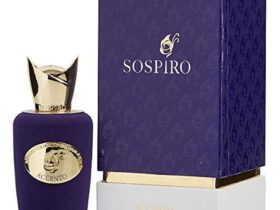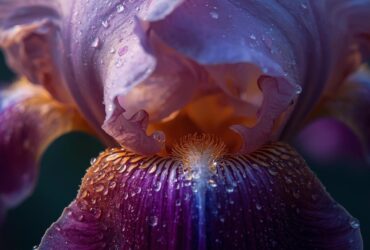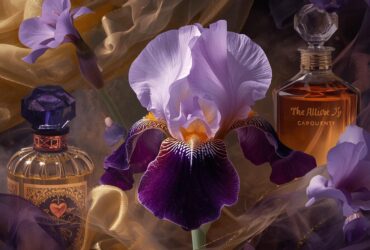Perfume and Literature: Perfume has the remarkable ability to evoke emotions, memories, and create a sensory experience unlike any other. It is no wonder that literature, with its power to transport readers to different worlds, has often embraced the use of fragrance to enhance storytelling. Throughout the centuries, iconic fragrances have been woven into the fabric of famous novels and poems, adding an olfactory layer to the narrative. In this article, we will explore some of the most notable instances where perfume takes center stage in literature.
One of the most enduring examples of perfume in literature can be found in Patrick Süskind’s novel “Perfume: The Story of a Murderer.” The story follows Jean-Baptiste Grenouille, a perfume apprentice in 18th-century France, who possesses an extraordinary sense of smell. Grenouille’s quest to create the perfect scent leads him on a dark and twisted path, where he becomes obsessed with capturing the essence of young women. Süskind’s vivid descriptions of scents, such as the aroma of ripe plums or the stench of decay, create a visceral reading experience, effectively immersing the reader in Grenouille’s olfactory world.
In F. Scott Fitzgerald’s masterpiece “The Great Gatsby,” perfume plays a significant role in the character development of Daisy Buchanan. Daisy is described as having a voice “full of money,” and her luxurious lifestyle is further accentuated by her choice of fragrance. Fitzgerald writes, “Her face was sad and lovely with bright things in it, bright eyes and a bright passionate mouth, but there was an excitement in her voice that men who had cared for her found difficult to forget: a singing compulsion, a whispered ‘Listen,’ a promise that she had done gay, exciting things just a while since and that there were gay, exciting things hovering in the next hour.”
This description hints at the allure and mystery surrounding Daisy, with her perfume acting as a symbol of her charm and the intoxicating effect she has on those around her.
In the realm of poetry, the works of Pablo Neruda often incorporate fragrances to evoke powerful emotions. In his poem “Ode to My Socks,” Neruda describes the scent of the newly acquired socks, saying, “they were / so soft that they slipped / from my hands / into a remote drawer.” The use of fragrance here adds a tactile quality to the poem, as the reader can almost feel the softness of the socks and imagine the delightful scent that accompanies them. Neruda’s ability to infuse everyday objects with poetic beauty showcases the potent connection between scent and emotion.
Moving on to the realm of classic literature, Marcel Proust’s monumental work “In Search of Lost Time” delves into the intricate relationship between memory, time, and fragrance. In the famous episode known as the “madeleine moment,” the narrator dips a madeleine cake into a cup of tea, triggering a flood of memories from his childhood. Proust writes, “No sooner had the warm liquid mixed with the crumbs touched my palate than a shudder ran through me and I stopped, intent upon the extraordinary thing that was happening to me.
An exquisite pleasure had invaded my senses, something isolated, detached, with no suggestion of its origin.” The scent of the madeleine cake acts as a catalyst, unlocking a treasure trove of memories and emotions, highlighting how fragrance can transport us through time and evoke the past in a profound way.
In contemporary literature, the use of perfume remains a potent tool for storytelling. For example, in Isabel Allende’s novel “The House of the Spirits,” the character Clara del Valle possesses a unique ability to communicate with spirits and predict the future. She is described as having a distinct scent that is “a mixture of jasmine and wet earth, a strong but delicate odor that remained in the air long after she had left.” This fragrance becomes synonymous with Clara’s presence and her enigmatic nature, emphasizing her otherworldly qualities and setting her apart from the other characters.
Perfume’s inclusion in literature is a testament to its power to evoke emotions, create atmosphere, and deepen the reading experience. From Süskind’s dark tale of obsession to Proust’s exploration of memory, fragrance adds an extra dimension to the written word. By engaging our olfactory senses, literature becomes more immersive, allowing us to experience the world of the characters in a more intimate and multisensory way.
In conclusion, perfume and literature have a long-standing relationship, with iconic fragrances leaving an indelible mark on famous novels and poems. Whether used to highlight a character’s allure, evoke memories, or set the mood, perfume adds a layer of sensory richness to the written word. As readers, we have the privilege of exploring these olfactory landscapes, where the subtlest of scents can transport us to distant places and evoke a myriad of emotions.








Leave a Reply